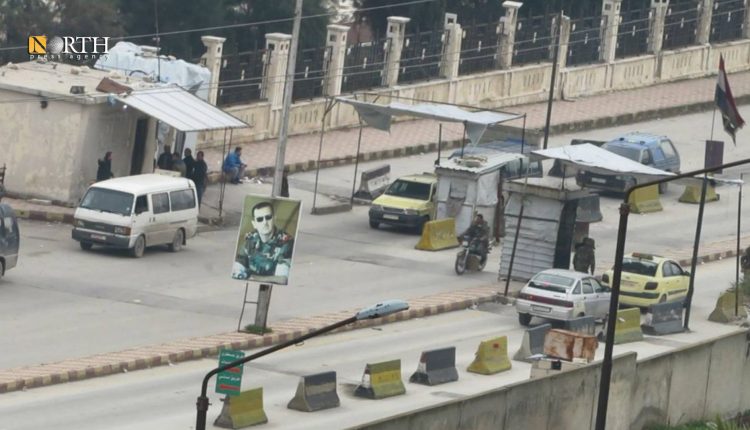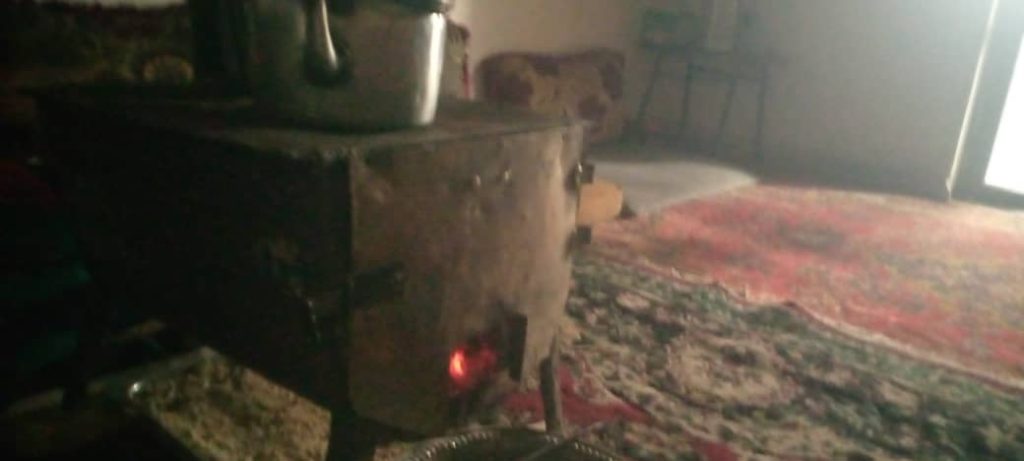
By Muhammad Habash
QAMISHLI, Syria (North Press) – The tragedy of about 300,000 Kurdish civilians continues in the city of Aleppo, northwestern Syria, and part of its northern countryside, as they have been facing a siege imposed by the Syrian government forces for over three weeks.
Areas in the northern countryside of Aleppo, aka Shahba Region, along with the neighborhoods of Sheikh Maqsoud and Ashrafiyeh in the city of Aleppo, falls under the control of the Autonomous Administration of North and East Syria (AANES).
Shahba Region houses IDPs of the Kurdish Region of Afrin, northwest Syria, which has been occupied by Turkey since 2018.
The Turkish forces and the Turkish-backed armed opposition factions, aka the Syrian National Army (SNA), surround Afrin from three directions, with only one route connecting it to the city of Aleppo which is controlled by the Syrian government forces.
Residents try to cope with the strict decisions of the Syrian government which prohibits the entry of fuel, medicines, and basic materials, making them experience harsh humanitarian conditions.
Unjust taxes
The siege started with prohibiting the entry of fuel by the Fourth Division, affiliated with the government forces, which previously prevented the entry of food and medicines through its checkpoints and imposed unjust taxes on goods entering these besieged areas.
Exclusive sources told North Press that the Syrian government allows the entry of fuel but demands twice the quantity entering the besieged areas, in addition to paying taxes to the Fourth Division.
The Fourth Division forces people to pay $110 per 220-liter barrel of fuel, which has increased from $90. This independent tax is imposed by officials within the Division without an official decision or constitutional reference, according to other sources.
Helpless IDPs
The suffering of the residents in these areas intensifies as they reside in camps or damaged houses due to the battles that took place in those areas.
In a dilapidated house in Shahba Region, Aziz, a pseudonymous displaced person from Afrin, tries to cope with the dire situation. He made a heater resembling those firewood-burning heaters.
Due to the lack of fuel and Aziz’s inability to afford firewood, he resorts to burning plastic materials, fabric scraps, and any other available materials capable of generating heat.
“We are compelled to endure the smell of plastic and waste; what matters most is having some warmth,” says Aziz, who lives with his family of a wife and three children in the rundown house.

Most residents, like Aziz, are unable to afford firewood, as the price per kilogram has reached 3,500 Syrian pounds (SYP) (about $0.25). Firewood is also hard to come by as local authorities have prohibited cutting trees in the area.
As for diesel, it is only available on black market at 12,000 SYP (about $0.9) per liter, which is an exorbitant sum for most people amid limited job opportunities and increasing economic challenges.
Othman, a pseudonym of a 20-year-old young man, is despaired regarding improving his living conditions. “We live in a completely-besieged big prison. No one hears our demands; we have lost hope,” Othman said.
“There is no electricity, fuel, or medications. We have been besieged for six years,” added Othman, who resides with his elderly parents in Sheikh Maqsoud neighborhood.
Draining despite rationing
Jamal Rashid, Deputy Co-Chair of the AANES in Shahba Region, described their areas as being on the brink of a humanitarian catastrophe due to the imposed siege.
The official explained that the medical sector is the most affected, as there are only two hospitals which are limited to receiving urgent medical cases.
“Residents suffer from harassment at security checkpoints and the imposition of taxes on goods, in addition to preventing the entry of many essential materials for living,” Rashid told North Press.
Rashid warned of the worsening of the humanitarian situation. “If fuel does not enter the besieged areas soon, they will be on the brink of a humanitarian catastrophe. We have already been compelled to reduce the production of bakeries and water supply,” Rashid added.
The residents of those areas live in prolonged darkness due to the absence of electricity caused by a lack of fuel. Furthermore, most municipal activities have ground to a halt.
The fuel shortage has led to the suspension of all activities of the AANES institutions, except for some essential services like securing bread and water supply.
Amin Aliko, an official at the AANES’ municipality in the areas described the municipal services provided in the Sheikh Maqsoud and Ashrafiyeh neighborhoods as “emergency services.” This is due to the near depletion of the fuel reserve.
Aliko asserted that the imposed siege on the area is nothing but a result of agreements between Damascus and Ankara to starve the people and achieve political gains for both parties.
Ibrahim Sheikho, a Human rights activist, blames the Syrian government for imposing a siege instead of providing services to residents who have lost their property due to Turkish occupation of their areas.
